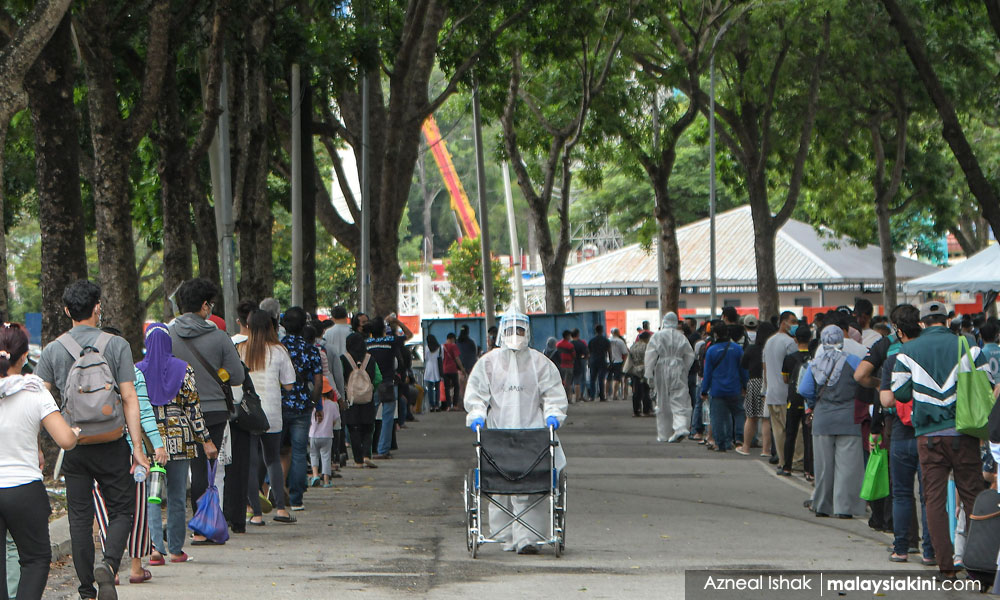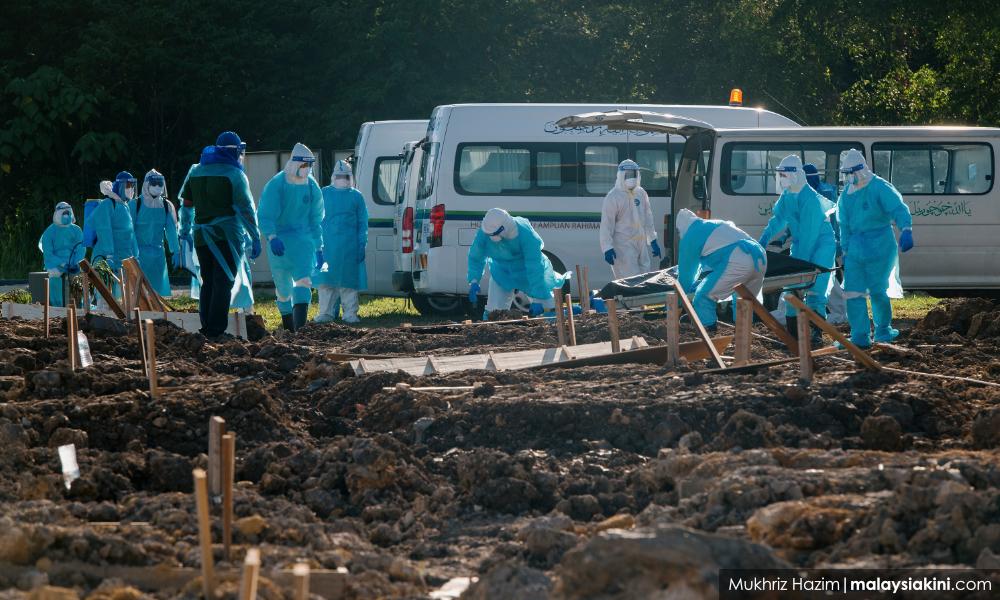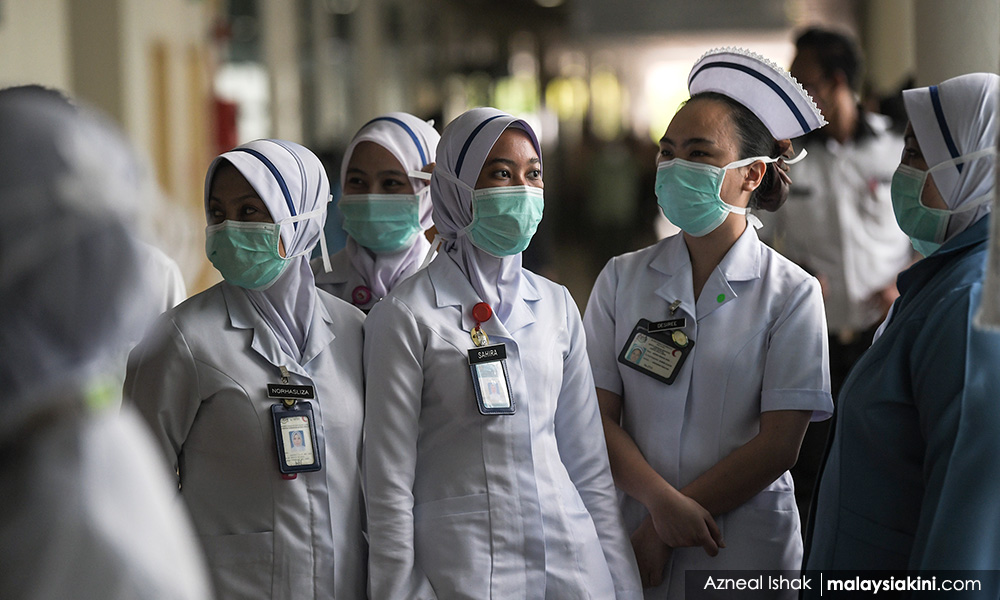MP SPEAKS | Granted, it has been over a week now since the announcement on the transition to endemicity was made by the prime minister.
With it, all restrictions on business operating hours and 50 percent capacity limit on social events shall be removed and prayers activities are allowed without physical distancing.
Doubtless, we all welcomed and embraced this with great delight and a long sigh of relief. It is perfectly understandable.
Simply put, it is a reflection of how tired and sick we were, with the many movement control orders (MCO) and especially of the long poorly executed MCOs which have had huge tolls on our lives, livelihood and the national economy.
Arguably, the very mention of the word 'endemicity' conjures such therapeutic effect on the public, the equivalent maybe to that of the potent anti-viral drug for Covid-19, Paxlovid.
But to politely remind us all, let me quote Dr Michael Ryan, executive director of the World Health Organization’s (WHO) Health Emergencies Programme, who recently said, “Endemic in itself doesn't mean good or safe. It just means that the SARS-CoV 2 virus, is here forever. It also means it can still spread, it can still hurt and it can still kill.”

To cite some examples, influenza and the four human coronaviruses that cause the common colds are also endemic and so is dengue, malaria and polio.
Misplaced complacency
Very unfortunately though, the word 'endemic' has also been unintentionally misused, as to invoke a misplaced complacency on safety or an end to the pandemic.
The current context of Covid-19 pandemic management in our country warrants a critical appraisal. Quite ironically, the transition to endemicity was announced during record numbers of Covid-19 cases which have yet to show any signs of real decline.
Acceptable baseline pandemic metrics, stability and predictability are arguably key factors in determining endemicity. Perhaps only the Health Ministry is privy to make a more accurate prediction of numbers, based on their SEIR mathematical model, known only to themselves.
The good news, however, is that this Omicron surge in other countries peaked within six to eight weeks and thereafter dropped sharply. This means that it is a faster peak and similarly drops faster than the Delta variant.

But the bad news is that our ventilated and lCU patients are at a three-month high. Our Covid-19 related deaths and particularly our brought-in-dead (BID) are at a four-month high and numbers are unabating. Another 105 people died on March 17, which brings us to an average of 87 people dying daily, due to Covid-19 in this week alone.
Although the good news is that 99.5 percent of all news cases in Malaysia are in Category 1 or 2, thanks to the high vaccination rate plus booster, the surge in cases may eventually overwhelm our public hospitals, by the sheer magnitude of numbers.
Clearer directions
In view of that eventuality, l would want to join the chorus of critique that the government and especially of Health Ministry, must take cognisant of and articulate clearer directions and measures as follows (beyond the appropriate SOPs of masking, physical distancing and TRllS [test, report, isolate, inform and seek]):
Firstly, rather than emphasising on getting booster dose for everyone (and stop talking about the fourth dose for now), focus our resources on 'vaccination mopping strategy' and intensify work on the 'vulnerable' as a 'mitigating strategy' to lower death numbers and BID.
Secondly, saddened by the fact that even as Omicron is less virulent, we are not seeing BID numbers falling. We should have learnt from the Delta wave that we must be focusing on managing aggressively the symptomatic patients, especially senior citizens with pre-morbidities and effectively mitigating them from dying before arrival to health facilities.
Thirdly, to improve case management at the primary care level and even at home (Home Surveillance Order), and to engage effectively the network of private clinics nationwide, as part of our primary health care system.

Fourthly, to enhance public health care capacity including human resources at the primary care level and upgrading of our infrastructure and technology, as to be capable of detecting and managing 'future epidemic' within an 'endemic' state.
Fifthly, to enhance genomic surveillance to detect the introduction of new variants. The Health Ministry must undertake to conduct full genomic sequencing, on at least 2 percent of the positive samples as advocated by the WHO, as to be ahead of the curve, in identifying new variants in the endemic phase.
Finally, we must tell ourselves that the next potent variant is coming, even more, pathogenic than the BA.2 of Omicron sub-variant. Only in this way will we actually prepare our public health infrastructure, our pillars of response and our clinical resources.
Countries need to learn a lesson and Malaysia must not be too bold in what she knows not, that is the future. We must place great emphasis on a plan, a health minister who is guided by science and public health experts rather than kowtowing to political pressure. We have to ensure that our next steps forward are for real, putting our national health, economy and livelihoods at the forefront of a holistic reform policy.
Transitioning to endemicity shall be the most favourite and welcomed phrase for now. Let us together undertake this journey responsibly and reboot our national economy sustainably and better.
DR DZULKEFLY AHMAD is the MP of Kuala Selangor and Pakatan Harapan’s Health Committee chairperson.

